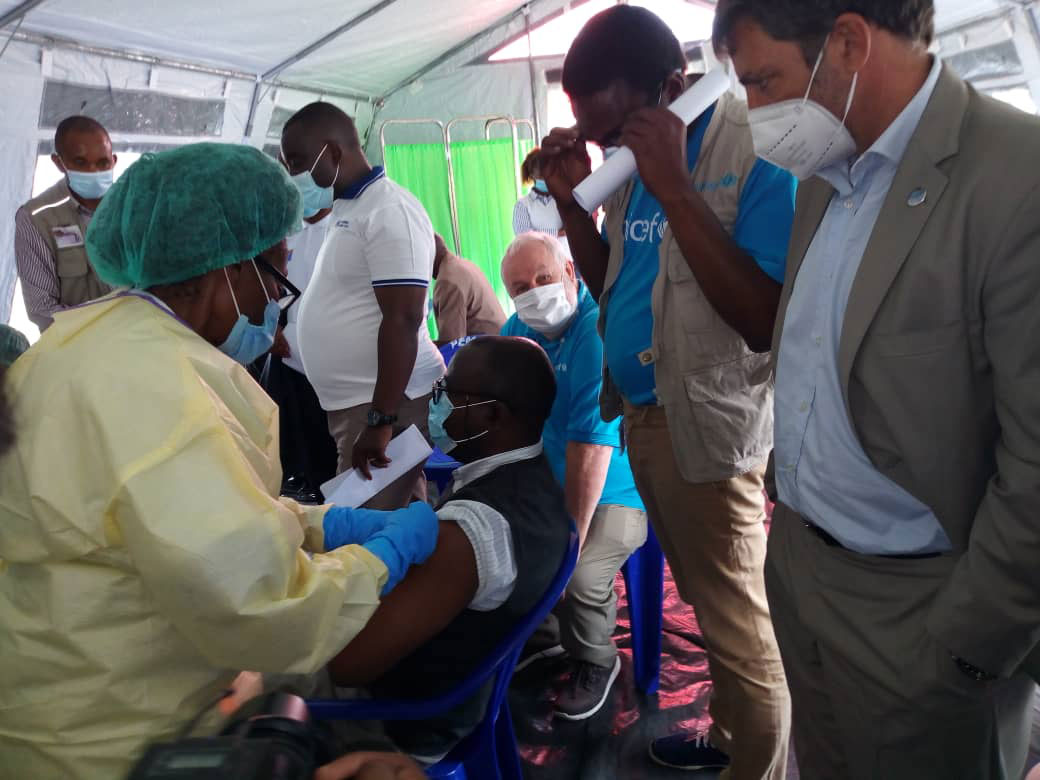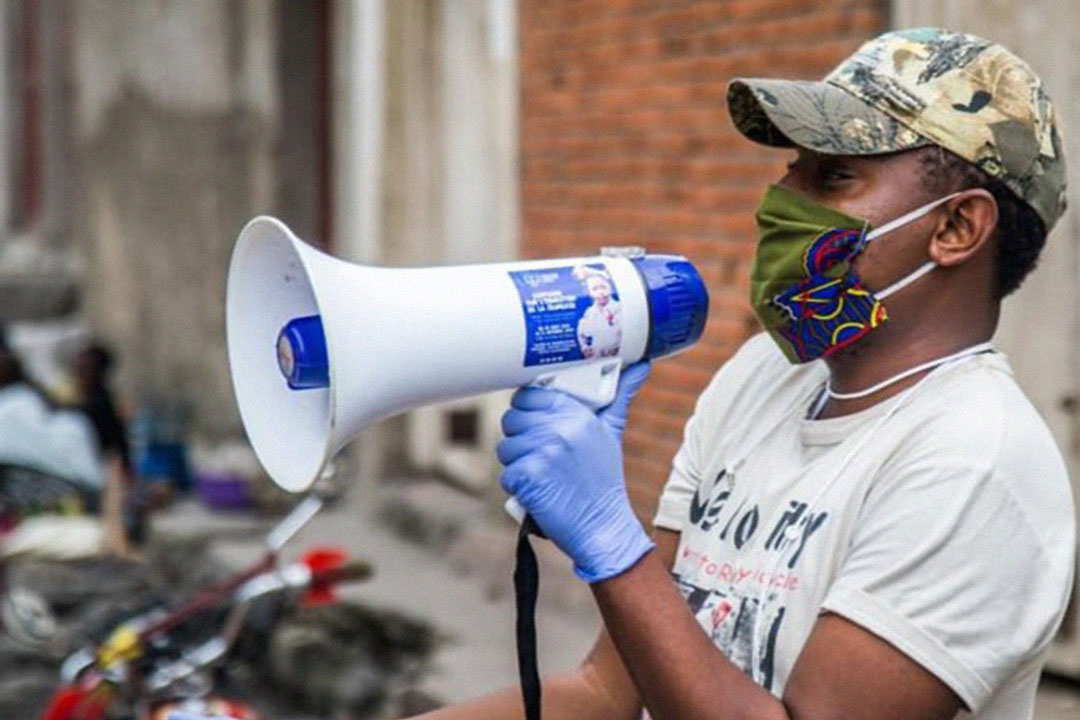Get the jab! COVID-19 vaccination in Goma
Community health workers, government and aid agencies join a chorus of voices encouraging vaccinations in the DRC.
- 4 June 2021
- 4 min read
- by Victor Muisyo

In a vast country like the Democratic Republic of Congo (DRC), ensuring the country's population of 86 million people vaccinate themselves against COVID-19 is an ambition that would not only require aggressive national campaigns, but also the participation of community social mobilisers and health workers at the grassroot level.
Bélle-Surprise Makaya, a 37-year-old health worker in Goma, North Kivu, dedicates her time moving from shop to shop, village to village talking to people about the importance of taking the COVID-19 vaccine. Together with other colleagues and volunteers, the main strategy involves identifying and engaging influential members of the society such as elders, religious leaders and teachers to help educate the community on the benefits of taking the COVID-19 jab.
Of all the COVID-19 vaccine doses supplied to Africa, the Oxford-AstraZeneca vaccine constitutes more than 90%.
"We started this campaign in late April when the first consignment of the vaccines arrived in Goma from Kinshasa. What prompted this initiative is the fact that, at first, people were hesitant to go for the jab but we are committed to dispelling such hesitations," she says.
North Kivu has the highest number of COVID-19 cases after the capital, Kinshasa. 60,000 AstraZeneca vaccine doses arrived in Goma, the province's capital, on Thursday 22 April 2021.

Credit: OMS RDC (WHO DRC)
At the North Kivu Provincial Hospital in Goma, a UNICEF tent that once forlornly stood in the compound is now operative. It's one of more than 66 vaccination centres in the city. Inside the tent, Jeanne Dusungu and colleagues wait to vaccinate those that turn up for the jab. She has also taken the initiative to personally mobilise and encourage locals to get the jab as a social responsibility to protect themselves and their families.
"Initially, we received a few people but, since we began the crusade, we have been very busy, vaccinating a good number so far. It was mostly health workers and aid workers that turned up for vaccination but we are now seeing encouraging numbers from members of the local population," she says.
Have you read?
Although progress was partially frustrated by the recent eruption of Mount Nyiragongo on May 22, their efforts have been largely unaffected.
The Congolese government and other aid agencies have also been at the forefront of efforts to publicise the importance of the inoculations. North Kivu Province's Governor Carly Nzanzu Kasivita led by example, being the first to get the jab.
"COVID-19 is endemic so we have to take this vaccine to be safe and protect the rest," Mr. Nzanzu says.
"It is, therefore, important that our people come get the vaccine and follow the government measures," he adds.
"There are more advantages than disadvantages to being vaccinated," says Congolese Health Minister Eteni Longondo, who was among the first to receive the jab at the University of Kinshasa's Faculty of Medicine.
Health workers and government health officials are confident that the vaccine uptake campaigns will bear fruit. Members of the local population that were highly sceptical have begun to adopted different mindsets.

Credit: Amani Institute
"I have received my jab. I have also taken my wife to get it. I was not sure initially but after they explained everything clearly to us, we did not see any harm," says Fify Nyamwema, a local shopkeeper in Goma.
Jean Ludovic Maternier, head of UNICEF's operations in Eastern DRC says: "We are letting them know that this vaccine has proven its effectiveness; certainly there have been a few people who have developed what is called a thrombosis, but it is one person in a million."
Africa CDC head and Cameroonian virologist Dr John Nkengasong acknowledged the efforts health workers are making in the vaccine rollouts: "We are advising African countries to use this pause to tighten their planning so that whatever doses they can get will be rolled out most efficiently.”
Other humanitarian agencies like Amani Institute, a sociocultural movement of young volunteers are also mobilising women’s organisations at community level to ensure that public health education messages on risk and prevention strategies are reaching all women, including through community radio, the use of technology and printed posters.
More from Victor Muisyo
Recommended for you









